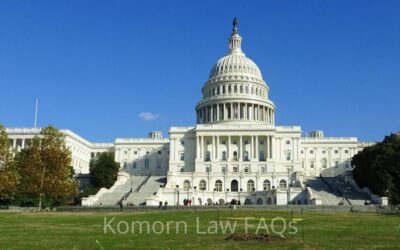Michigan Workers and the Right to Protest: Can They Force a Change in Business Strategy?
The ever-evolving economic landscape can create friction between Michigan workers and their employers. Workers may find themselves at odds with company strategies or investments, leading to protests aimed at forcing a change. But what legal rights do these workers have, and can they truly compel an alteration in business direction?
The National Labor Relations Act (NLRA) Framework
The foundation for worker protest rights in Michigan lies in the National Labor Relations Act (NLRA) of 1935. This federal law guarantees workers the right to engage in “concerted activities” for the purpose of “collective bargaining or other mutual aid or protection.” However, the NLRA doesn’t grant a blank check for protest.
The key lies in the distinction between protected and unprotected activities.
Protected Protests: When Workers Have a Voice
Protected protests focus on issues directly related to the terms and conditions of employment, which are core subjects of collective bargaining. Examples include strikes or rallies over:
Wages and Benefits: Negotiations for fairer pay, improved health insurance plans, or additional paid time off fall under this category.
Job Security: Protests against layoffs, plant closures, or outsourcing of jobs directly impact job security, a core bargaining right. The seminal case, NLRB v. Mackay Radio & Telegraph Co. (1938) [URL nlrb v mackay radio & telegraph co 1938 ON Cornell University law.cornell.edu], established the right to strike over unfair labor practices that threaten job security.
Working Conditions: Protests concerning safety standards, excessive overtime, or unfair disciplinary actions are protected activities.
APPEALS in STATE or FEDERAL COURT
When you need to appeal a decision you feel is wrong.
Call Komorn Law (248) 357-2550
Unprotected Protests: When Business Decisions Hold Sway
Protests targeting broader business decisions, such as:
Plant Closures or Relocations: These decisions often involve complex economic factors beyond just labor costs. The NLRB v. Babcock & Wilcox Co. (1956) case exemplifies this.
Here, the closure was deemed outside the scope of mandatory bargaining as it wasn’t solely motivated by labor costs.
Product Development: Worker protests against specific product lines or company investments fall outside the scope of core bargaining rights.

Strategies for Effective Protests, Even When Business Strategy Reigns Supreme
While forcing a change in business strategy might be challenging, effective worker protests can still achieve significant results:
Focus on Core Bargaining Rights: Frame protests around the impact of the business decision on wages, benefits, or job security.
Negotiate with Management: Open communication with management can unearth underlying reasons for the decision and explore possible alternatives.
Union Strength: Unionized workers have greater leverage in negotiations and may have more protected activity under collective bargaining agreements.
Public Pressure: Utilize media outreach to raise awareness about the impact of the decision on workers and the local economy.
Political Advocacy: Lobby representatives to push for policies that protect worker interests in plant closures or relocations.
or just quit and go work at the record store.
Here are some of the laws in Michigan regarding employment relations…enjoy.
MCL – Act 176 of 1939
| Document | Type | Description |
|---|---|---|
| Section 423.1 | Section | Declaration of public policy. |
| Section 423.2 | Section | Definitions. |
| Section 423.3 | Section | Employment relations commission; creation; appointment, qualifications, and terms of commissioners. |
| Section 423.4 | Section | Employment relations commission; oath of commissioners; vacancies; chairman; removal; quorum; seal. |
| Section 423.5 | Section | Employment relations commission; compensation and expenses of commissioners and employees. |
| Section 423.6 | Section | Repealed. 1978, Act 250, Imd. Eff. June 20, 1978. |
| Section 423.7 | Section | Employment relations commission; principal office; office space; rules. |
| Section 423.7a | Section | Employment relations commission; conducting business at public meeting; notice of meeting; availability of certain writings to public. |
| Section 423.8 | Section | Employees; rights. |
| Section 423.9 | Section | Prerequisites for strike or lockout; notice of dispute and statement of issues; mediation. |
| Section 423.9a | Section | Election in case of impending strike; conduct and supervision; time; persons entitled to vote; secret ballot; place; rules; absentee voting; hearing on eligibility to vote; determination. |
| Section 423.9b, 423.9c | Section | Repealed. 1978, Act 250, Imd. Eff. June 20, 1978. |
| Section 423.9d | Section | Voluntary arbitration; existing collective agreement as binding on parties; agreement to arbitrate; designation of arbitrator; expense of arbitration; enforcement of agreement; hearings; notice; procedure; transcript; findings; opinion and award; enforcement of award. |
| Section 423.9e | Section | Bargaining unit. |
| Section 423.9f | Section | Mass picketing; threats or force, picketing private residence, misdemeanor. |
| Section 423.9g | Section | Copy or statement of most recent offer submitted by employer to bargaining unit. |
| Section 423.10 | Section | Steps by commission to effect settlement. |
| Section 423.11 | Section | Hearings; witnesses; oaths; evidence; subpoena; order requiring appearance; contempt; service of process or papers; proof of service. |
| Section 423.12 | Section | Disqualification of commissioner. |
| Section 423.13-423.13g | Section | Repealed. 1978, Act 250, Imd. Eff. June 20, 1978. |
| Section 423.14 | Section | Collective bargaining agreement between employer and labor organization; sharing of financial support of labor organization; payment of dues; condition of employment; appropriation. |
| Section 423.15 | Section | Unlawful possession of property; penalty. |
| Section 423.16 | Section | Company unions; interference with unions and discrimination prohibited. |
| Section 423.17 | Section | Prohibited conduct; violation; civil fine. |
| Section 423.17a | Section | Unlawful picketing to force recognition or bargain with labor organization. |
| Section 423.19 | Section | Liberal construction of act; police powers. |
| Section 423.20 | Section | Expenses paid from legislated appropriations. |
| Section 423.22 | Section | Unlawful acts; legal or equitable remedy. |
| Section 423.22a | Section | Repealed. 1949, Act 230, Imd. Eff. May 31, 1949. |
| Section 423.23 | Section | Review of rulings or orders by supreme court; exceptions; violations of certain provisions as unfair labor practices; remedies; procedures. |
| Section 423.24 | Section | Conspiracy; penalty. |
| Section 423.25 | Section | Written findings as to matters in disagreement; availability of writings to public. |
| Section 423.25a | Section | Confidential information. |
| Section 423.26 | Section | Collective bargaining representatives; duties; grievances by individual employee; adjustment. |
| Section 423.27 | Section | Petition as to representation; investigation; hearing; election. |
| Section 423.28 | Section | Determination of appropriate unit for collective bargaining. |
| Section 423.29 | Section | Directing election in bargaining unit; eligibility to vote; rules; rerun and runoff elections; election on petition of persons not parties to collective bargaining agreement. |
| Section 423.30 | Section | Duty to bargain; collective bargaining, definition. |
Conclusion
While Michigan law protects worker protest rights, there’s a fine line between influencing company strategy and exceeding the boundaries of protected activity. By focusing on core bargaining rights, employing strategic protest tactics, and understanding the legal framework, Michigan workers can effectively advocate for their interests. But can also hear the words… You’re fired. We are moving overseas.
Consulting with legal counsel specializing in labor law is crucial when navigating the complexities of protest rights and business decision-making.
In the FEDERAL COURT SYSTEM
When you need to go on the offense – to put the prosecution on defense
Komorn Law (248) 357-2550.











